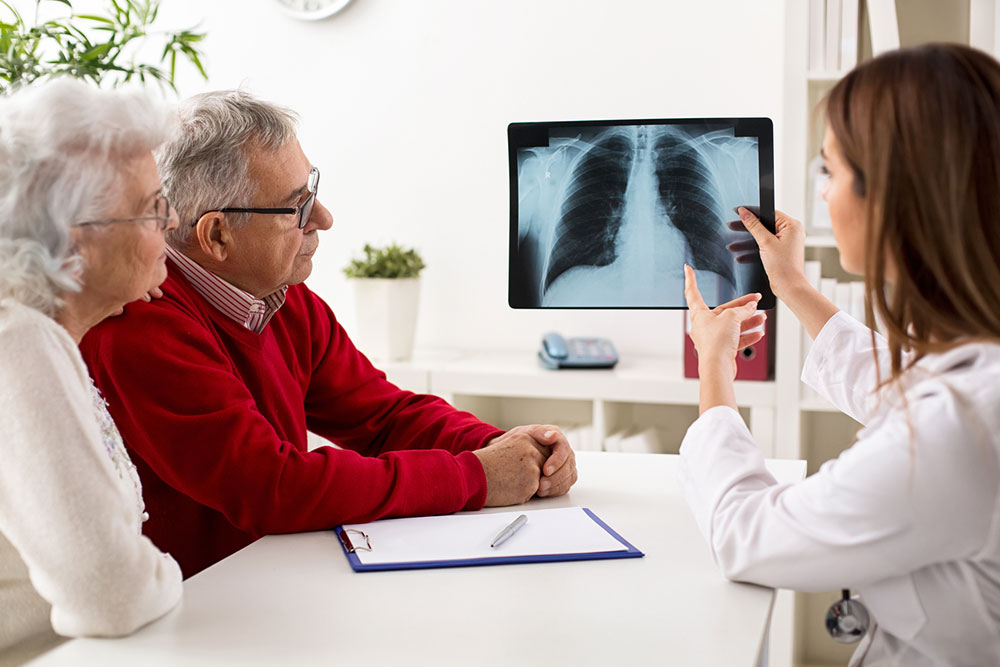4 things to know about the final stage of lung cancer

When lung cancer reaches stage 4, it means that the cancer has become metastatic and spread from the lungs to other parts of the body. This is the final stage of lung cancer, and it is mostly incurable at this stage. Also, at this stage, the individual may undergo several physical and emotional changes. Keep reading to learn more about the symptoms of stage 4 lung cancer and treatments to manage them.
- Symptoms
Some of the common symptoms that manifest during the final stage of lung cancer are listed below.
- Pain
- Extreme weakness and fatigue
- Persistent coughing
- Loss of appetite
- Muscle loss
- Fluid buildup around the lungs, which may trigger shortness of breath
- Restlessness
- A rattle in the chest when breathing
- Blood in spit or coughing
- Nausea
- Hoarse voice
- Wheezing
- Frequent respiratory infections (like bronchitis)
- Confusion
- Headaches
- Seizures that may occur if the cancer has spread to the brain
- Trouble focusing
While symptoms may vary between individuals, these are some common physical symptoms noticed at this stage.
- Diagnosis
To determine if the lung cancer has reached the fourth or final stage, a healthcare professional may suggest a few tests. These tests help them determine how much the cancer has spread and to what parts of the body. These tests include the following-
- MRI scan to check if the cancer has reached the brain or the spinal cord
- CT scan to check if the cancer has spread to the liver, brain, lymph nodes, or other organs
- PET scan to locate the cancer cells in the body
- Bone scans to check if the cancer has spread to the bones
- Treatments
Treating lung cancer at its final stage can be challenging. However, health experts may suggest a few management options and procedures to delay the progress of the cancer. Doctors may also advise some treatments to relieve or alleviate the physical symptoms occurring at this stage. These treatment options may include chemotherapy and immunotherapy. Healthcare professionals may recommend prescription remedies after evaluating factors like how much the cancer has spread and to what organs.
- Emotional changes
Due to the severity of the condition at this stage, an individual may experience various emotional changes, such as a lack of interest in certain activities. At this stage, the patient’s loved ones must give them the necessary emotional support. Letting patients express their emotions and concerns before a healthcare expert can be helpful. One can also ask them if they wish to receive professional care to deal with the physical and emotional changes. Besides the patient, their caregivers should also care for their emotional health at this stage.
To navigate the final stage of lung cancer, open communication with a health expert is crucial. It helps patients and their caregivers learn more about symptoms and explore management options.



